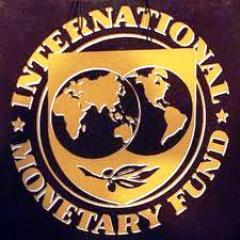South Sudan facing “massive” economic challenges: IMF
December 13, 2016 (JUBA) – South Sudan faces massive economic challenges owing to its ongoing conflict and subdued oil prices, the International Monetary Fund (IMF) said on Tuesday.
 A team from the IMF, upon conducting a review mission in the war-torn nation, advocated for decisive economic measures and lasting peace are key to rebuilding confidence in South Sudan’s economy.
A team from the IMF, upon conducting a review mission in the war-torn nation, advocated for decisive economic measures and lasting peace are key to rebuilding confidence in South Sudan’s economy.
“Restoring of macroeconomic stability will require immediate reduction of the large fiscal imbalance that in the last couple of years has led to a rapid expansion in government borrowing from the central bank and the accumulation of significant arrears,” said Jan Mikkelsen, who led the IMF team.
“For this to be effective, it will require simultaneous efforts to promote reconciliation and address the security challenges and humanitarian emergency,” he added.
The conflict in South Sudan, which broke out in December 2013, has witnessed the displacement of nearly two million people. Ten of thousands have also been killed.
According to the IMF delegation, South Sudan’s real income, adjusted for terms of trade losses, has declined by about 50 percent since 2013 and the number of people in need of humanitarian assistance has risen to unprecedented levels.
“Inflation has soared to about 500 percent (12 months through October), the exchange rate has depreciated steeply, and foreign exchange reserves are close to exhaustion,” partly reads the IMF’s statement.
The IMF team, however, said the country’s 2016/17 fiscal year budget recently adopted is a vital step in the right direction towards restoring macroeconomic stability.
“The budget reflects most of the revenue and expenditure measures proposed by the IMF mission in May 2016 and presents a substantial reduction in the deficit from about 30 percent of GDP in 2015/16 to about nine percent of GDP,” it stressed.
The team commended the authorities’ decision to stop direct loan advances from the Bank of South Sudan to the government and to limit overall domestic financing.
“The mission urges the authorities to adopt further measures, including eliminating fuel subsidies and ghost workers and reducing costs of foreign diplomatic missions,” Mikkelsen said.
The world financial body, however, recommended that given a substantial decline in real wages for civil servants in 2016/17, wages for lower grades be raised somewhat to compensate for the loss of purchasing power.
“These additional measures would reduce the overall deficit and financing requirement, which would be closed through domestic financing, essentially Treasury bills. If implemented, this budget would contribute to lowering inflation substantially and to stabilizing the exchange rate,” Mikkelsen said.
The IMF mission lauded measure taken to improve the public financial management framework, particularly the establishment of the Cash Management Committee.
“To further strengthen expenditure control and ensure successful implementation of the budget, the mission recommends the following additional measures: strengthening the cash management framework, tightening commitment controls with a view to reducing arrears, and passing the Procurement Act,” Mikkelsen said.
(ST)
